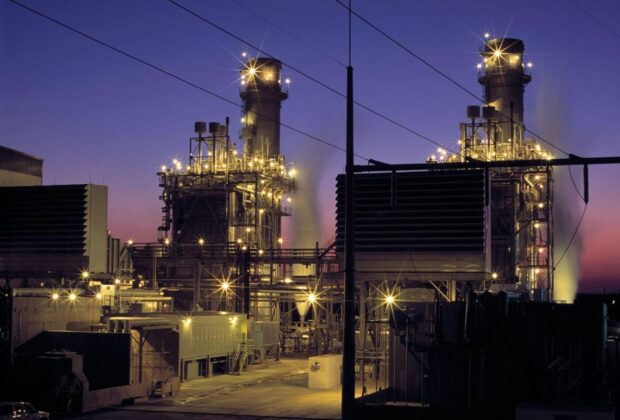As the global demand for oil and gas increases, energy companies must find ways to transport these valuable resources quickly and efficiently. Transportation is a critical component of the oil and gas industry, and it requires careful planning and execution to ensure that the products are delivered safely and on time. This blog will discuss key factors that energy companies should consider when transporting oil and gas and the best practices for achieving efficient transportation.
Factors to Consider When Transporting Oil and Gas
1. Mode of Transportation
The mode of transportation is one of the most critical factors that energy companies need to consider when transporting oil and gas. There are several options available, including pipelines, tankers, and trucks. Pipelines are the most commonly used mode of transportation, as they are the most cost-effective and efficient way to transport large volumes of oil and gas over long distances. However, pipelines are not always feasible, especially in remote or difficult-to-access locations. Tankers or trucks may be the best option.
2. Infrastructure
The infrastructure required to transport oil and gas is another critical factor that energy companies must consider. For example, pipelines, pumping stations, and storage tanks require significant infrastructure investment. Tankers and trucks, on the other hand, require less infrastructure but may require additional equipment, such as trailers or specialized tankers, to transport the products safely.
3. Regulatory Requirements
Energy companies must also comply with various regulatory requirements when transporting oil and gas. These requirements can include environmental regulations, safety regulations, and transportation regulations. For example, companies may need to obtain permits for transporting hazardous materials or comply with spill prevention and response regulations.
Best Practices for Efficient Oil and Gas Transportation
1. Implement Efficient Routing and Scheduling
Efficient routing and scheduling are essential for minimizing transportation costs and maximizing the speed of delivery. Energy companies should develop a transportation plan that considers the location of the source and destination, the available modes of transportation, and any regulatory requirements. By optimizing the routing and scheduling of transportation, energy companies can reduce transportation costs, minimize delays, and improve delivery reliability.
2. Use Technology to Monitor and Manage Transportation
Technology can play a vital role in improving the efficiency of oil and gas transportation. For example, GPS tracking systems can be used to monitor the location of tankers or trucks in real time, allowing companies to optimize routing and scheduling based on traffic conditions and other factors. Additionally, transportation management systems can manage the entire transportation process, from planning and scheduling to tracking and reporting.
3. Invest in Maintenance and Safety Measures
Investing in maintenance and safety measures is essential for ensuring oil and gas safe and efficient transportation. Regular maintenance of transportation equipment, including pipelines, tankers, and trucks, can help prevent breakdowns and minimize downtime. Additionally, companies should implement safety measures to prevent accidents and spills, including employee training, regular safety inspections, and spill prevention and response plans.
4. Establish Partnerships with Transportation Providers
Establishing partnerships with transportation providers can help energy companies optimize transportation operations and reduce costs. By working closely with transportation providers, companies can access specialized equipment, expertise, and resources that can help improve transportation efficiency. Additionally, partnerships can help companies negotiate better rates and improve communication and collaboration between transportation providers and energy companies.
5. Optimize Load Capacity
Optimizing load capacity is critical for maximizing the efficiency of oil and gas transportation. Energy companies should ensure that tankers and trucks are loaded to their full capacity while also adhering to weight restrictions and safety regulations. By optimizing load capacity, energy companies can reduce the number of trips required to transport oil and gas, minimize transportation costs, and improve the overall efficiency of transportation.
6. Implement Sustainability Measures
Sustainability is becoming a more and more significant factor for energy companies. Implementing sustainability measures can help improve the efficiency of oil and gas transportation while reducing the environmental impact. For transportation, energy companies should consider using alternative fuels, such as biofuels or natural gas. Additionally, companies can reduce their carbon footprint by using more fuel-efficient vehicles, implementing eco-driving practices, and reducing idle time.
7. Develop Contingency Plans
Developing contingency plans is critical for ensuring the continuity of oil and gas transportation in unexpected situations, such as accidents or equipment failures. Energy companies should have a robust contingency plan that includes alternative transportation routes, backup equipment, and a crisis management team. By developing contingency plans, energy companies can minimize the impact of unexpected disruptions and ensure the timely delivery of oil and gas.
8. Monitor Key Performance Indicators
Monitoring key performance indicators (KPIs) is essential for measuring the effectiveness of oil and gas transportation and identifying areas for improvement. Energy companies should track KPIs such as transportation costs, delivery times, safety incidents, and environmental impacts. By monitoring KPIs, energy companies can identify trends and patterns, make data-driven decisions, and continuously improve the efficiency of oil and gas transportation.
9. Embrace Digitalization
Digitization is transforming the oil and gas industry, and energy companies can leverage digital technologies to improve transportation efficiency. For example, digital platforms and software can help energy companies optimize transportation routes, manage inventory, and track real-time deliveries. Additionally, digital technologies such as the Internet of Things (IoT) and artificial intelligence (AI) can help energy companies monitor and manage transportation more proactively and efficiently.
10. Implement Effective Supply Chain Management
It is critical for the success of oil and gas transportation. Energy companies should work closely with their suppliers, transportation providers, and customers to optimize the supply chain for efficiency and cost-effectiveness. It can include implementing just-in-time inventory management, developing long-term relationships with transportation providers, and using data analytics to identify areas for improvement.
By implementing effective supply chain management, energy companies can reduce transportation costs, improve delivery times, and increase customer satisfaction. Effective supply chain management can also help energy companies anticipate and mitigate potential disruptions, such as supply chain disruptions or equipment failures.
To Sum Up
At CNPS, we understand the challenges energy companies face in achieving efficiency in transportation. Our innovative energy solutions, including transportation optimization software, IoT sensors, and predictive analytics tools, can help energy companies optimize transportation processes, reduce costs, and improve overall efficiency. With our proficiency in supply chain management and our commitment to sustainable transportation practices, we are dedicated to helping energy companies achieve their goals and succeed in the rapidly evolving energy industry.
So if you’re looking oil and gas solutions to achieve greater efficiency in oil and gas transportation, contact CNPS Solutions today to learn more about how our solutions can assist you in attaining your objectives. Together, we can transform energy transportation and create a more sustainable and efficient future.









